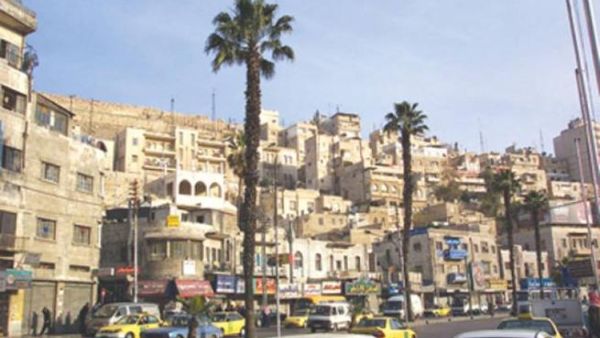Jordanian households are stressed out over what 2013 holds for them in terms of higher costs of living.
With inflation estimated to hit 7 per cent this year due to price liberalisation of fuel in mid-November, people are alarmed at the thought that the anticipated increases in living costs will exacerbate their financial miseries.
Several consumers interviewed by The Jordan Times expressed worries that they would not be able to change their spending priorities as their incomes barely cover their basic needs.
Merchants of essential goods also expect the months ahead to be ‘tough’ not only for households but also for businesses.
Za’al Majali, a retired military serviceman who lives in Amman, was not very optimistic about 2013.
“It would be a difficult year for many people because salaries are no longer enough to meet rising expenses of households,” said Majali, widowed father of nine.
Although his monthly income is around JD2,000 from a pension and another job at present, the 59-year old indicated that with the largest portion of his income going to school and university fees, it is not an easy task for to cut down the expenses of the family.
Shireen Latafneh, from the central city of Salt, and her husband are forced to borrow money to pay the fees of their two children at a private school, which she described as a relatively affordable education facility. Latafneh works at a private university and gets paid around JD380 a month, while her husband’s monthly income is slightly over JD400.
Skeptic that 2013 would bring any improvements in their living conditions, she said the family will have to cut down on buying clothes or going to a restaurant describing such behaviour as unnecessary expenses.
Slowdown in economic activity over the past few year has even made it difficult for contractor Mohammad Sakran, once classified among the well-offs in the northern city of Irbid.
Sakran described 2012 as ‘ a very bad year’, expressing hope that economic woes would ease in 2013.
“My priority nowadays is to secure a decent life for the family,” he said.
Economic stagnation has forced the contractor out of major projects for three consecutive years, relying only on small-sized businesses to keep him going.
Merchants see prices up
According to Samer Jawabreh, president of the Foodstuff Traders Association (FTA), consumers will have to pay higher food prices in 2013 driven by international and local challenges.
Locally, Jawabreh indicated that the lifting of subsidies on fuel oil derivatives and an expected decision to raise electricity tariffs in the first months of the year would force importers to charge higher prices to reduce higher costs.
Jawabreh predicted food prices in the domestic market to go up by 3 per cent to 5 per cent in the coming months.
Elaborating on global challenges that may push food prices up, the FTA president cited unstable weather conditions in major food producing countries as a top threat to food security worldwide, noting that fluctuations in oil prices and currencies exchange rates also affect food prices.
Jawabreh explained that demand for food items globally is outweighing supply mainly due to emerging economies, such as China, India and Brazil, where the population and incomes are increasing.
However, he believed that authorities in Amman can bring stability to the food market or even help lower prices of commodities.
“Unifying monitoring measures among government bodies can help reduce costs on traders, while removing sales tax and customs duties on many food items will reflect positively on consumers,” the FTA chief said.
According to Jawabreh, the government collects nearly JD70 million a year in revenues from sales tax and customs fees on food imports valued at over JD1.5 billion.
Salah Hmeidan, a leading clothes importer and former president of the Garment Traders Association, was not very optimistic about 2013 though he hoped it would be better than 2012.
Any government decision to raise taxes or tariffs would place higher costs on traders and then result in more expensive items for end-users, Hmeidan said, adding that clothing retailers had a difficult year due to weak demand.
“The majority of consumers in Jordan have become less interested in upgrading their wardrobes,” he added.
Stagflation
Qassem Hammouri, a professor of economics at Yarmouk University, expects 2013 to be a ‘tough’ year facing Jordan’s economy as an expected rise in prices is going to accompany slow economic growth and relatively high unemployment rate.
According to Hammouri, fuel and food prices would push inflation rate in the Kingdom to over 8 per cent in 2013, affecting 80 per cent of the population.
Asked if it would be possible for households to change their consumption behaviour and patterns to counter rising living costs, the economist said only certain segments of middle class Jordanians can reprioritise their spending by transferring their children from expensive private schools to public schools, switching from clothing brands to cheaper items and reducing their fuel and energy bills.
But, according to Hammouri, around 40 per cent of Jordanian households would not have the space to cut down the spending because the income falls short of meeting their needs.








